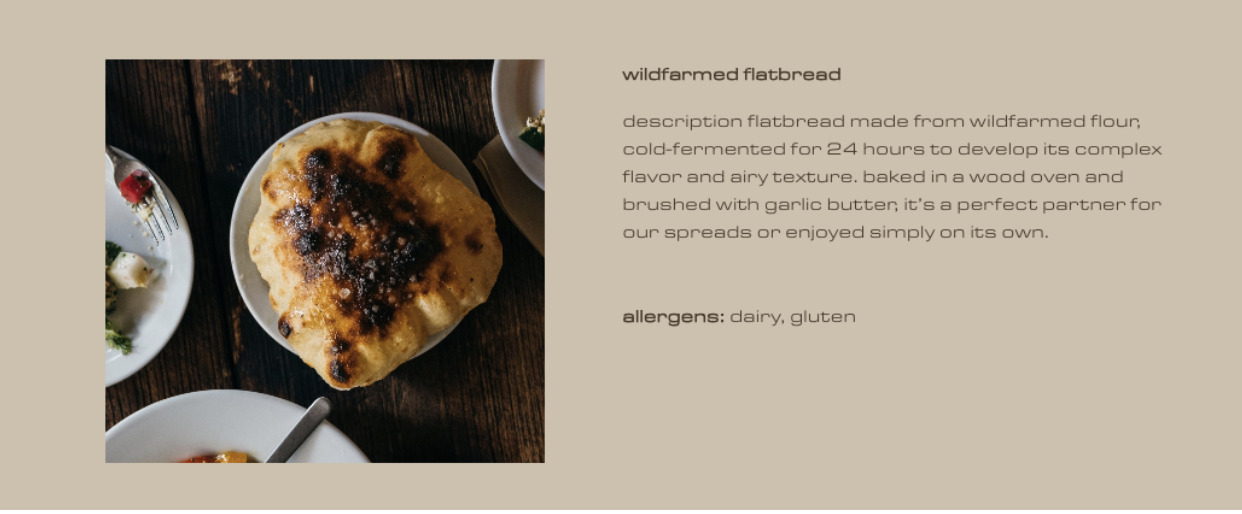Over the past few years, “regenerative” has become a buzzword in the food industry. Major brands, from Nestlé to General Mills, have announced regenerative agriculture commitments, while smaller companies tout labels like “Regenerative Organic Certified,” that, according to the label’s certifying body the Regenerative Organic Alliance (ROA), are growing exponentially in number.
Yet, with food costs still on the rise and growing supply chain uncertainty, one key question remains: Do consumers genuinely care enough to pay the premium that comes with regenerative products, or will the category remain a niche concept?
Recent consumer insights suggest a bit of both. On one hand, awareness of regenerative agriculture is rising: a 2024 Regenified report claims that 68% of identified “Values-Based Shoppers” have heard the term. On the other, a Purdue University survey finds that 71% of consumers still have little to no familiarity with regenerative agriculture, and just 37% of Regenified’s survey respondents claim to understand it. More concerning: many who do know the concept are not willing to foot the bill for “planet-friendly” farming practices, according to Purdue’s study and others.
How, then, do regenerative-focused brands actually get the consumer on board?
The ROA, which was founded by the Rodale Institute, Patagonia, and Dr. Bronner’s All-One, says the ROC label is designed to be a “revolutionary umbrella” for soil health, animal welfare, and worker fairness. Since its formation in 2017, ROC has grown rapidly and now encompasses 18.4 million regenerative certified acres, 2,040 certified products, and nearly 500 different crops across various farms and brands.
“When you look at what has been accomplished by the Regenerative Organic Certified label since its formation, it is nothing short of spectacular,” La Rhea Pepper, interim CEO of ROA, tells AgFunderNews.

‘Consumers will pay a premium for health’
Even so, data suggests that terms like “soil regeneration, biodiversity enhancement, and ecosystem restoration” do not always resonate with consumers.
Health benefits, on the other hand, do.
“Consumers will pay a premium for health,” says Tyler Mayoras, director of portfolio growth at Manna Tree Partners, an investment firm with a portfolio of “better-for-you” brands. “It’s more difficult to get consumers on the bandwagon of sustainability because it’s so esoteric, whereas health is personal.”
Mayoras says he advises Manna Tree portfolio companies to lead with health, but there has to be something behind those claims. “In order to get to health, [the product has to be] about nutrient density, which is where the regenerative side comes in.”
While still early days in terms of concrete data, there are growing indications that foods grown regeneratively have higher nutrient density than those grown conventionally.
Some come from food testing and data insights platform Edacious, which recently raised $8 million in venture capital from many regenerative-focused investors including Patagonia’s venture fund Tin Shed Ventures, Trailhead Capital, Nest Family Office, Trailhead Capital, and The First Thirty.
“We started to see research showing that healthier soils developed through regenerative agriculture practices, change the nutritional quality of the food,” Edacious founder Ed Smith told AgFunderNews last week.
The startup’s investors clearly see the potential to drive more adoption of regenerative agriculture with this data. As Pete Oberle, managing partner, Trailhead Capital said “Nutrient density should be the catalyst for full food and agriculture value chain transformation.”
ROC itself acknowledges the powerful role health claims can play. “Even if a consumer cannot fully articulate what ROC means, the campaign’s slogan ‘Heal the Earth, Nourish your Life’ communicates that ROC is beneficial for both the planet and an individual’s personal health, the latter of which will likely have greater influence when making a purchasing decision,” says Hilary Butler, brand and marketing liaison at ROA.
Mayoras name-checks Simple Mills as an example of a successful, healthy, and regenerative food line. The company sources ingredients from regenerative farmers but is probably better known for its line of healthy crackers, cookies and baking mixes sold at major retailers. And it’s clearly worked: Flowers Foods acquired Simple Mills for nearly $800 million at the start of 2025 after it generated sales of $240 million in 2024.
“The companies that have been most successful in incorporating regenerative agriculture have been those that are dual purpose: they first incorporate the health piece of it, and then bring in the regenerative,” Mayoras says.
“Everything [Simple Mills] do is about nutrient-dense foods. And a way to get nutrient-dense foods is to have regenerative grown crops, because there’s less chemicals used, the soil is healthier. They’ve done a really good job of making that that link.”

Certification ‘isn’t a huge motivator’ for behavior change
For Edd Lees, CEO of regenerative bread brand Wildfarmed, certification “isn’t a huge motivator for positive human behavior” or likely to motivate buying habits.
Branding, on the other hand, is. “Brands can affect human behavior changes, whether it’s music or fashion or food. We see that all the time.”
Consumers that have seen a bag of Wildfarmed flour — adorned with bright, pop-art-like imagery and slogans like “Makes the best regenerative pizza you’re ever going to have” — can understand why Lees would say that.
Beyond its consumer brand (which it sells both directly and via retailers), Wildfarmed also sells to hospitality sector, including some well known UK pizza restaurant chains. While you might not think that branding would play much into the latter, the company has managed to get its name onto menus next to the items made with its flour, almost like a badge of honor.
It’s certainly the coolest flour brand out there given its backstory, which involves a famous UK DJ and producer who radically sold his music rights to buy a farm in France, and then joined forces with Lees and UK TV presenter George Lamb to launch Wildfarmed.

But it’s a lot more than just a brand. Wildfarmed is an end-to-end supply chain helping farmers transition to regenerative agriculture, processing wheat at Wildfarmed mills, and then selling the flour or baking bread from it, all while giving farmers a premium price on what they’d get elsewhere. It operates like a quasi-cooperative and has nearly 100 farm members across the UK and France; it’s also eyeing expansion to the US.
Wildfarmed’s emphasis on its growers feeds right into the popularity of farmers’ markets, local shops, and family-run restaurants, says Lees, and ultimately forms part of the brand.
“Humans like knowing who has grown their food,” he says, adding that it helps consumers better understand what a brand is doing and why they are doing it.
Another great example of that, he says, is Dutch chocolate-maker Tony’s Chocolonely, which, thanks to its superior taste, has grown popular enough to land on the shelves of mainstream retailers like Walmart and Target despite its higher price tag.
To the casual consumer, it’s a high-quality chocolate bar in quirky packaging that can even be customized. Peel back the wrapper (literally and metaphorically), and consumers discover that the company is committed to helping end poverty, child labor and forced labor in the cocoa supply chain via its “five principles.”
“Following these principles addresses poverty by enabling cocoa farmers to earn a living income. This is crucial for putting an end to forced labor, child labor and deforestation on cocoa farms in West Africa,” the company notes on its website.
Lees himself has a simple explanation for the success of the brand: “It’s a good product, and when you start engaging with the brand you learn about it,” says Lees. “The point is the power of the brand. If you were to just say ‘this is regen chocolate,’ I don’t know that would carry the message.”
Read the orginal article: https://agfundernews.com/consumers-have-heard-of-regenerative-agriculture-what-will-convince-them-to-to-actually-buy-it


